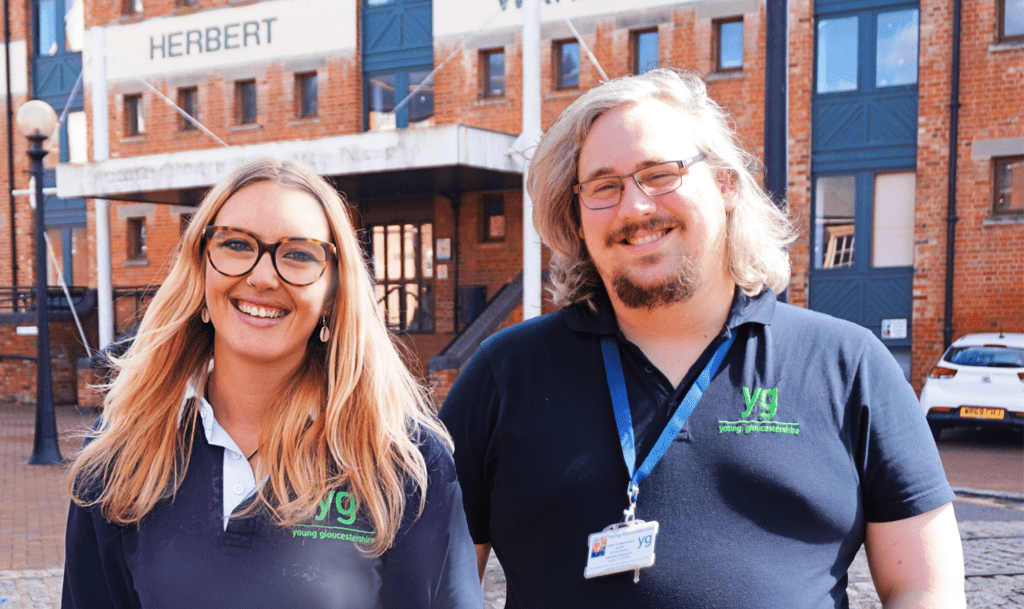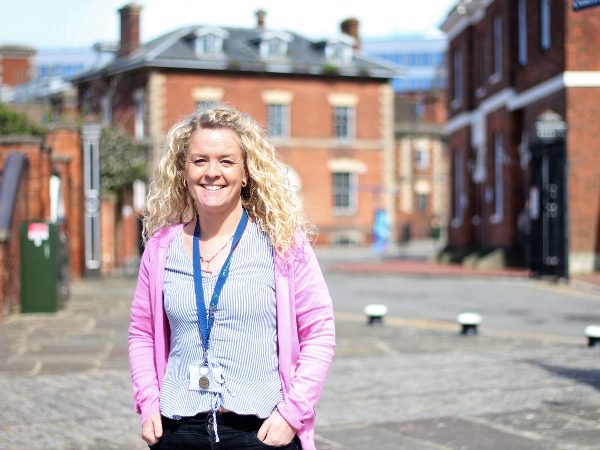
Understanding Youth Work, Mentoring & Counselling.
We often get asked what the difference is between some of our services and staff, including Youth Work, Mental Health Youth Work, Mentoring and Counselling. In this blog some of our staff have taken time out to reflect on the uniqueness of their role and the type of support they offer to young people.
Toby Cadenhead – Senior Youth Worker
Youth work can be really hard to define. Most people would agree that youth work is helping young people, but this is true of many other professions as well. So, what is different about youth work? Many people go to the image of playing pool, drinking tea and chatting with young people about issues affecting them. Of course, this absolutely is youth work, and very important, but there is a much deeper process going on here that can happen in many other settings too.
Youth work has a rich history growing out of the Boy’s and Girl’s Brigades at the turn of the 20th century and largely provided by faith groups. By the 1960s youth work had grown into a mainstream with youth clubs across the country hosting radio DJs and having state of the art facilities. In more recent years there has been a decline in Government funding for these public services meaning the nature and space of youth work has changed dramatically. Youth clubs are much thinner on the ground and much of youth work these days takes place in other settings and is often picked up by the voluntary sector.
Over the years lots of people have attempted to understand the unique nature of youth work: In 2005 Bernard Davies wrote an article called “A Manifesto for Youth Work” and attempted to define the characteristics of successful youth work (revised in 2015 and then 2021) and in 2020 the National Youth Agency published a “National Youth Work Curriculum”. I’ll attempt to add my thoughts to these, but would encourage everyone to check those out!
Youth work is type of informal education, where we use a variety of strategies to support young people in their personal, social and educational development. A primary aim of youth work is the desire to empower young people to make their own decisions and considering what they want. Whatever we are supporting that young person with, we must always ensure we are amplifying their voice and giving them choices and working within this framework. It is also imperative that the young person’s engagement is voluntary – we will always do our best to engage young people and support them, but ultimately, we can’t and shouldn’t force them to work with us. Youth work requires a non-judgemental approach so that we can help any and all young people get the support they need from where they are starting.
Over recent years at YG we have also introduced Youth Worker roles with a focus on Mental Health. The supportive nature of these roles is incredibly similar but the nature of the services that they deliver means they take a closer interest in young people’s mental health and wellbeing. Often working one to one a Mental Health Youth Worker is able to look at the specific lifestyle changes that will aid a young person’s wellbeing. they will be able to introduce tools, habits and hobbies that encourage good mental health.
Honor Binning – Delivery Manager – Mentoring
“Mentoring services provide a long-term ‘safe space’ for anyone who requires a sustained, trusted relationship with an adult. It is a one-to-one, non-judgemental relationship in which an individual mentor voluntarily gives time to support and encourage another. This relationship is typically developed at a time of transition in the mentee’s life and lasts for a significant and sustained period.” (Active Community Unit, Definition of Mentoring).
Mentoring can be delivered with both young people and adults. Mentoring is a one-to-one relationship in which people can be paired together in order to learn from one another. Mentoring relationships often have a specific goal in mind, whether that’s career mentoring or a specific aim and goal of the individual involved. By its nature mentoring generally matches one more experienced individual with another who is keen to learn or develop by following their guidance. The relationship provides a positive role model who can give practical advice and guidance using their own lived experience to help guide their mentee. The mentor can be a volunteer or a paid professional.
Mentoring and youth work have many similarities and some would consider mentoring to be a subsidiary of youth work. Like youth work, the relationship in mentoring is informal and the mentee should feel empowered to steer the conversation and set personal goals. However, unlike traditional youth work, mentoring is always one-to-one, often has a clearer aim in terms of outcomes or planned journey that is set by the mentee and the style of work can be used for adults as well as young people.
Rachel Crawley – Counsellor
To me, counselling is walking along a dark path side by side with someone, whilst holding a light up so that they can see which direction they want to take. That light could symbolise the training counsellors receive and can include things like listening skills, non-verbal communication and specific techniques. The British Association for Counselling and Psychotherapy (BACP) explains that counsellors won’t give their opinions, give advice or prescribe medication but will help you find your own solutions to the issues you’re experiencing.
Counselling can be done with anyone, children, young people and adults. Young Gloucestershire provides counselling for those between 14 and 25 years of age and between 16 and 25 across the other project. It would be unreasonable to expect a 16 year old to have the same levels of understanding and life experience as a 40 year old. When working with young people there is therefore an adaptation on the counsellor’s part to work within the client’s frame of reference. The most noticeable difference when working with young people as opposed to adults is that you are dealing with issues in real time, in most cases (e.g. issues at school, with parents, discovering sexuality and identity…) Adults can often be bringing issues that happened several years ago, if not decades, which means there can be a level of ‘distance’ between them and the issue being brought.
Counselling works best when attending on a weekly or bi-weekly basis, is consistent and when a client is ready to engage with what comes up in sessions. The counsellor-client relationship is like no other – it is boundaried, neither party will know the other outside of the sessions and the counsellor will not disclose much about themselves so that the focus remains on the client. The support given is on an emotional level. If we were to compare counselling to youth work or mentoring, one of the main differences would be that there is less need for such firm boundaries, the youth worker can give away more about themselves and the support is usually more practical (i.e. help with budgeting or cooking skills).
Working well together.
Whilst counselling, youth work and mentoring offer different types of support, there are many similarities as well. Both counsellors and youth workers should aim to provide a safe and non-judgmental space. Both should strive to empower the young person to make decisions for their own lives and display an open attitude to whatever it is that the young person may talk about that day. Both workers also have a duty of care to keep the young person safe, and where necessary may have to complete safeguarding and work with external agencies. Whilst information sharing can at times occur in the best interest of the young person, all workers will have a commitment to confidentiality. This is particularly true of counselling, where there are very few times a counsellor will ever break confidentiality.
It is however, when these areas of support work together, that we can provide something really holistic with hopefully most “bases being covered”. It can equip a young person with the emotional insight needed to process and deal with issues in their life, aiding personal growth and providing techniques to deal with things better in the future, as well as practical life skills that will help as they grow and mature, helping them to face whatever life may throw their way.
You may also like...
Redesigning Graphic House: Creating the safe spaces young people deserve

Meet Jamie – Learning, growing, and giving back through Youth Work

From Probable Mental Illness to Wellness

Young Gloucestershire’s ED and I journey

